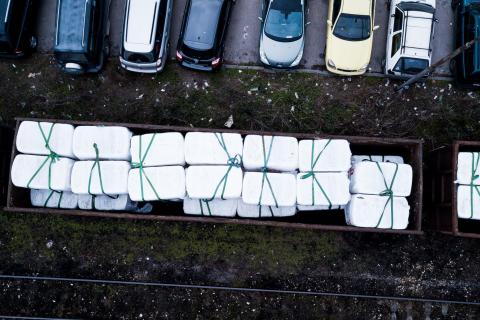Toxics Plastic Waste Trade in Bulgaria

Bulgaria is set to transpose the EU directive on single-use plastic (SUP) items as of July 2021 (Directive (EU) 2019/904) and will ban only 8 products of single-use plastics, as listed in the Directive. The Directive calls on each country to apply additional measures to reduce single-use plastic products; however, this is left up to the country when implementing the EU law. In line with this recommendation, we, as NGOs, believe that Bulgaria should implement more ambitious measures. A petition demanding ban on single-use plastics launched jointly between Za Zemiata and Greenpeace Bulgaria gathered close to 20,000 signatures by citizens and was officially send to the Ministry of Environment and Waters in October 2020. As of today, in July 2021 and past the EU deadline, the draft law on how the Directive will be addressed is still in the making. Following bilateral meetings with the Ministry of Environment and Waters, it is clear though that there is no ambition for Bulgaria to go beyond those items and there is no clarity on how the law would be implemented in practice.
In Bulgaria, the waste import and resulting increased waste incineration in the thermal power plants and cement kilns have further impacted communities, which are often in already heavily industrialised and polluted areas. Such is the case with the community in the north-east town of Devnya (called “the valley of the big chemistry”), where waste has already been burnt for years in a cement plant and an incinerator, and now there are additional investment proposals for the construction of yet more new incinerator installations. The local community claims that the air is very polluted; however, there is an official measurement air quality installation far from the industrial area, which does not show the real situation on the ground. People install mobile air quality monitoring stations to confront this.
This report relates to Sustainable Development Goals 3, 6, 8, 9, 11, 12 and 16.
Special thanks to IPEN's Central, Eastern and Western Europe Regional Coordinator Jan Samanek and Regional Hub Arnika for their important contributions to the development and finalization of the project.
| Attachment | Size |
|---|---|
| 739.43 KB |
